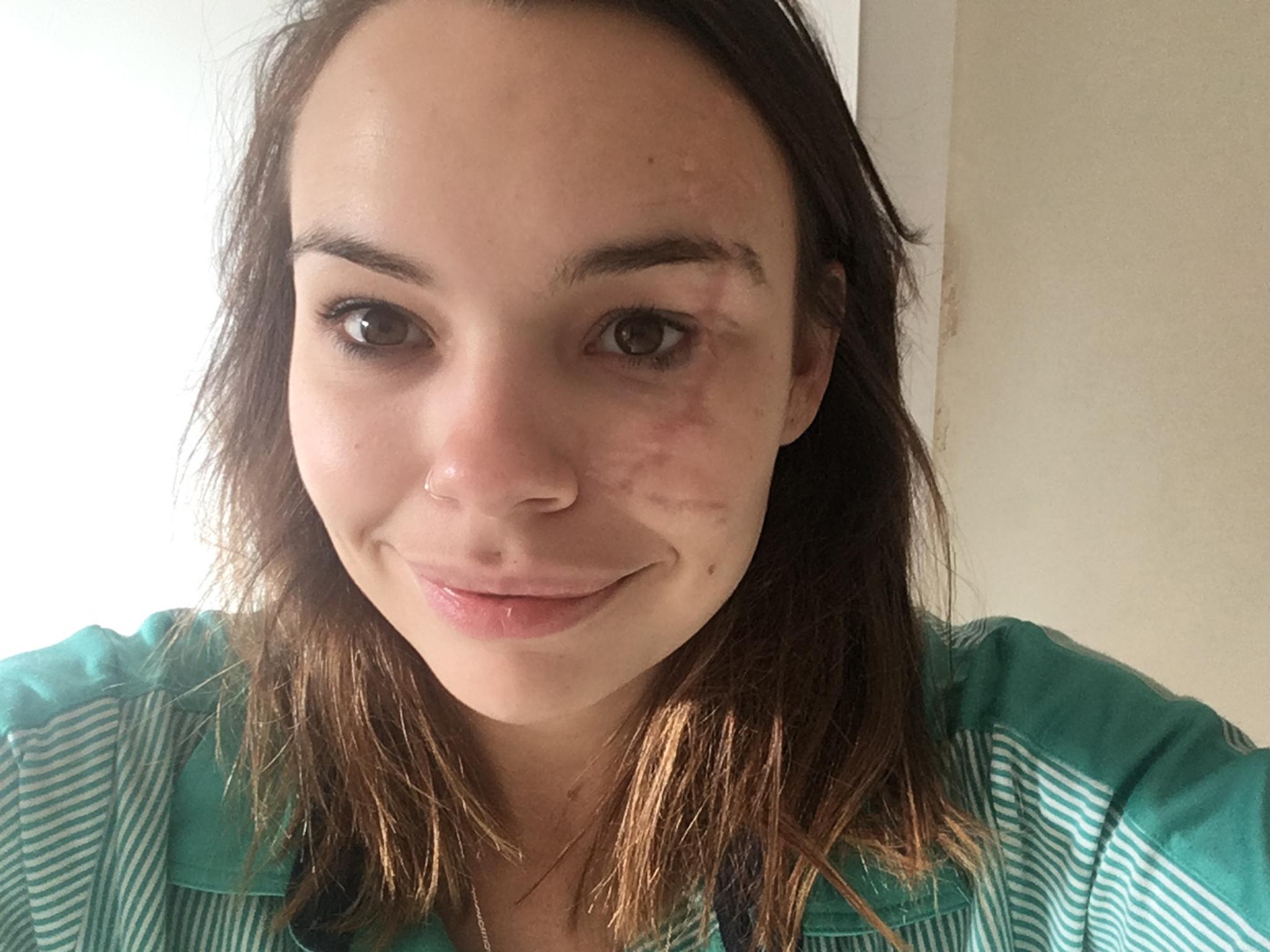How I learned to wear my scar with pride
In 2014, Phyllida Swift's was in a car accident which resulted in broken bones and a scar on her face. She tells The Independent how she has learned to be confident in herself and to no longer sweat the small stuff

Last year, Phyllida Swift stood proudly for her graduation photo. Like so many students when the three years of lectures, coffees and late night library sessions come to an end she had a lot to be proud of.
However, in addition to her degree in Model Making from the Arts University in Bournemouth, she had also been on her very own journey over the course of her degree after her life changed significantly as a result of a 2014 car crash which left a permanent reminder in the form of a scar down her face.
Ms Swift, 23, had arrived in Ghana in July of that year to volunteer, however, just one day after stepping off the plane the minibus she and 14 others were travelling in was involved in an accident.
“I came around in the van, really disorientated but the one thing that was evident was that I could feel my face was completely cut open,” she tells The Independent. “‘Everyone around me kept grabbing my hand and telling me not to touch my face”.
Inspiring body positivity quotes
Show all 12Swift was stitched up in a Ghanian hospital and also broke various bones in her back as well as her hip and elbow. Six days later she was transferred to hospital in the UK where the stitches were taken out of her face and redone.
She first saw the change in her face after the first operation in Ghana, however, despite the shock people might anticipate Swift to feel, she hastily remembered there is more to life and that, frankly, she was lucky to be alive.
“Remarkably my phone came out of the crash unscathed so I was able to take selfie of myself,” she explains. “I built [the wound] up in my head because I had felt it and I knew it was going to be substantial but ultimately when I took the photo I was expecting a huge revelation and to break down but I didn’t. I don’t know whether I was just on painkillers or disorientated but I just thought, ‘ok, I’m still here’.”
After going back home to Chester for two months to recover where she rarely went out and just “existed”, Swift returned to uni to begin her third year which she says is when the emotional impact of the accident sank in.
Although nervous to head back to uni, Ms Swift soon regained her independence and confidence thanks, in part, to her friends who she says never looked at her differently.
She does notice people staring now and again butsays she has not received any outright offensive comments or bullying.
“You get stares and subtle stuff but you don’t get people outright saying, ‘Oh my god, look at your face because everyone has got a stiff, British upper lip where they don’t want to offend you.”
In the initial stages of recovery, the 23-year-old says she used to try and cover up her scar as much as she could with make-up but has now learned to wear it with pride.
“I have come to terms with it and it is part of me. I would never try and hide it, it is kind of hard to anyway but I don’t feel the need to go out with a full face of make-up on every single day.”
Since graduating last year, Ms Swift has taken part in motivational speeches surrounding young people and body image including at the Teenage Cancer Trust and Changing Faces.
What does she tell the young people she is there to support?
“People walk around with scars, whether they are physical or mental , mine are so evidently bared on my face that it gives me the power to talk to people, people are so much more willing to open up to me because they can see my flaws and can see I’ve been through so much.
“It’s grounded me to a point where people feel they can talk to me and it's given me a massive insight into the struggles young people face in a modern day world where everyone is trying to be perfect. I’m never going to look like that, no one does in real life and it’s about voicing that to people. There is much negativity online and body shaming; it breeds insecurity and a lack of identity because you are constantly trying to appeal to something that is not achievable or real.”
Overall, Ms Swift has learned from being one of the one million people living in the UK with a disfigurement to their face or body, to be confident in her own identity.
“Life is too short to sweat the small stuff and care what other people think. I’ll so happily wear my scar with pride now, it is a mark of what I have been through and a mark of being able to appreciate how lucky I am.”
Subscribe to Independent Premium to bookmark this article
Want to bookmark your favourite articles and stories to read or reference later? Start your Independent Premium subscription today.

Join our commenting forum
Join thought-provoking conversations, follow other Independent readers and see their replies